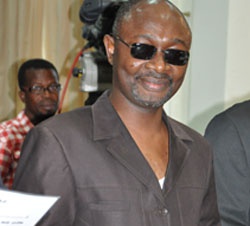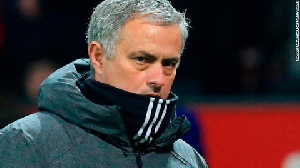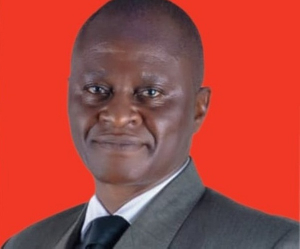Anti-corruption Crusader Martin Amidu has alleged that the Mahama administration did not want businessman Alfred Woyome convicted for the GHC51 million that was fraudulently paid to him by the State.
The former Attorney General told Sampson Lardy Anyenini on Joy FM’s news analysis programme ‘newsfile’ Saturday November 14, that the “Government was very happy” about Justice John Ajet-Nasam’s acquittal and discharge of Mr Woyome, as far as the criminal aspect of the case was concerned.
Mr Woyome’s accounts and assets were frozen about three years ago after he was arrested and charged for causing financial loss to the State, as well as defrauding by false pretences, with regards to the payment made to him, between 2009 and 2010, under Betty Mould-Iddrisu and Ebo Barton-Odro as Attorney General and Deputy, respectively.
However, he was acquitted and discharged by Mr Ajet-Nasam’s High Court. Justice Ajet-Nasam, who is one of 34 justices recently exposed on camera receiving bribe to pervert justice, said at the time that Prosecutors failed to prove Mr Woyome fraudulently obtained the GHC51.2 million.
He also indicted the Prosecution for failing to call Mrs Mould-Iddrisu, Rex Magnus Danquah, Ebo Barton-Odro, Paul Asimenu, Samuel Nerquaye-Tetteh and others, who had all given written opinions that Woyome was entitled to the money, as witnesses.
“They [Government] never wanted Woyome convicted, that’s why I went to the Supreme Court,” Mr Amidu intimated in his interview with Lardy Anyenini.
According to him, the Government’s appeal against the judgment was for “window dressing” purposes.
He said the recent judicial corruption exposé by investigative journalist Anas Aremeyaw Anas, has implications for Ajet-Nasam’s judgment on the Woyome case.
“…The Court of Appeal will have to take that into consideration, as to the validity of the judgment. I said that if they argue their appeal well, they will succeed, and I indicated the lines they should use in my article,” he told Mr Anyenini.
“…It’s because I didn’t trust [justices] Ajet and Obimpeh, that’s why I went with the cases to the Supreme Court,” Mr Amidu said, adding: “I myself suspected them to be corrupt.”
On the civil leg of the saga, the Supreme Court unanimously ruled that Mr Woyome got the money fraudulently, since he had no parliamentary approval for the contract that covered the work he allegedly did for the State ahead of Ghana’s hosting of CAN 2008. The ruling followed Mr Amidu’s suit. Mr Woyome was then ordered to refund the money.
He promised to do so by the end of 2015. In March this year, his lead counsel, Sarfo Boabeng, told the nine-member Supreme Court panel that heard the AG’s application for the retrieval of the money that his client had already resolved to make the payment at the end of 2015.
Just recently, a group calling itself CitizenGhana Movement (CGM) demanded from the Justice Minister and Attorney General, an update on progress made so far by the state towards getting Mr Woyome to refund the money.
The group said in a statement that it was making the demands in accordance with Ghanaians’ right to information as guaranteed in Article 21 (1) (f) of the 1992 Constitution.
General News of Sunday, 15 November 2015
Source: Daily Guide
Gov't never wanted Woyome convicted – Martin Amidu
 Alfred Woyome
Alfred Woyome
















